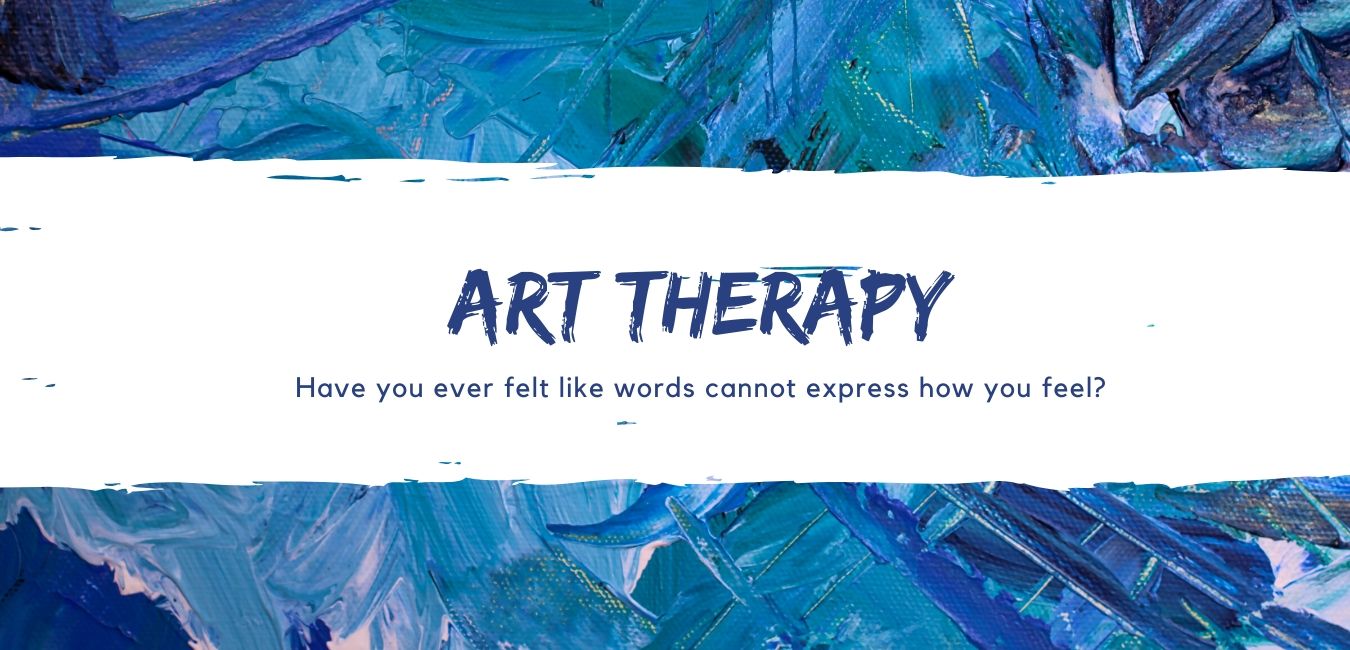Do you enjoy expressing yourself creatively? Do you find comfort from tapping your fingers, doodling, or holding something in your hands? If you answered yes to any of these art therapy might be a good fit for you.
What is art therapy?
"Art therapy is an integrative mental health and human services profession that enriches the lives of individuals, families, and communities through active art-making, creative process, applied psychological theory, and human experience within a psychotherapeutic relationship. .Art therapy, facilitated by a professional art therapist, effectively supports personal and relational treatment goals as well as community concerns. Art therapy is used to improve cognitive and sensorimotor functions, foster self-esteem and self-awareness, cultivate emotional resilience, promote insight, enhance social skills, reduce and resolve conflicts and distress, and advance societal and ecological change." (Amercian Art Therapy Association, https://arttherapy.org/about-art-therapy/)
Do you have to be an artist or artisticly talented to benefit from art therapy?
Absolutely not! Art therapy sessions are non-judgemental times that are focused on your mental and emotional well-being not artistic abilities.
Art therapy is similar to journaling, in that when journaling grammer, spelling, if others understand it do not matter. In a similar way art therapy is for you to express yourself. Artistic skill does not matter, what matters is that you find a new or deeper way to express yourself.
Who is art therapy for?
Children
Adolescents
Adults
Art therapy can be beneficial for anyone
What happens in an art therapy session?
Art therapy sessions will be tailored to your indivdiual needs. Art therapy may use drawing, painting, collage, fiber arts, ceramics, sculpture, or found objects. The focus will not be on teaching you a new artistic skill, but teaching you how to use the art to benefit your personal development. Art will be used to help you determine your goals, express youerself, process your life, and build resiliency. You will be able to keep your art in order to remember your growth through the therapy process. During and after you make art you will discuss with the therapis the meaning of the art.
What is art therapy?
"Art therapy is an integrative mental health and human services profession that enriches the lives of individuals, families, and communities through active art-making, creative process, applied psychological theory, and human experience within a psychotherapeutic relationship. .Art therapy, facilitated by a professional art therapist, effectively supports personal and relational treatment goals as well as community concerns. Art therapy is used to improve cognitive and sensorimotor functions, foster self-esteem and self-awareness, cultivate emotional resilience, promote insight, enhance social skills, reduce and resolve conflicts and distress, and advance societal and ecological change." (Amercian Art Therapy Association, https://arttherapy.org/about-art-therapy/)
Do you have to be an artist or artisticly talented to benefit from art therapy?
Absolutely not! Art therapy sessions are non-judgemental times that are focused on your mental and emotional well-being not artistic abilities.
Art therapy is similar to journaling, in that when journaling grammer, spelling, if others understand it do not matter. In a similar way art therapy is for you to express yourself. Artistic skill does not matter, what matters is that you find a new or deeper way to express yourself.
Who is art therapy for?
Children
Adolescents
Adults
Art therapy can be beneficial for anyone
What happens in an art therapy session?
Art therapy sessions will be tailored to your indivdiual needs. Art therapy may use drawing, painting, collage, fiber arts, ceramics, sculpture, or found objects. The focus will not be on teaching you a new artistic skill, but teaching you how to use the art to benefit your personal development. Art will be used to help you determine your goals, express youerself, process your life, and build resiliency. You will be able to keep your art in order to remember your growth through the therapy process. During and after you make art you will discuss with the therapis the meaning of the art.

Does art therapy actually work?
When people are reminded of traumatic events our brains verbal functioning reduces. However, the visual parts of our brain are very active. This is why while in shock often it takes a while for us to have the words to explain it. Through art we can connect to parts of ourselves that we do not have words to express, and use the art to help us process those aspects and learn to talk about them.
When people are reminded of traumatic events our brains verbal functioning reduces. However, the visual parts of our brain are very active. This is why while in shock often it takes a while for us to have the words to explain it. Through art we can connect to parts of ourselves that we do not have words to express, and use the art to help us process those aspects and learn to talk about them.

